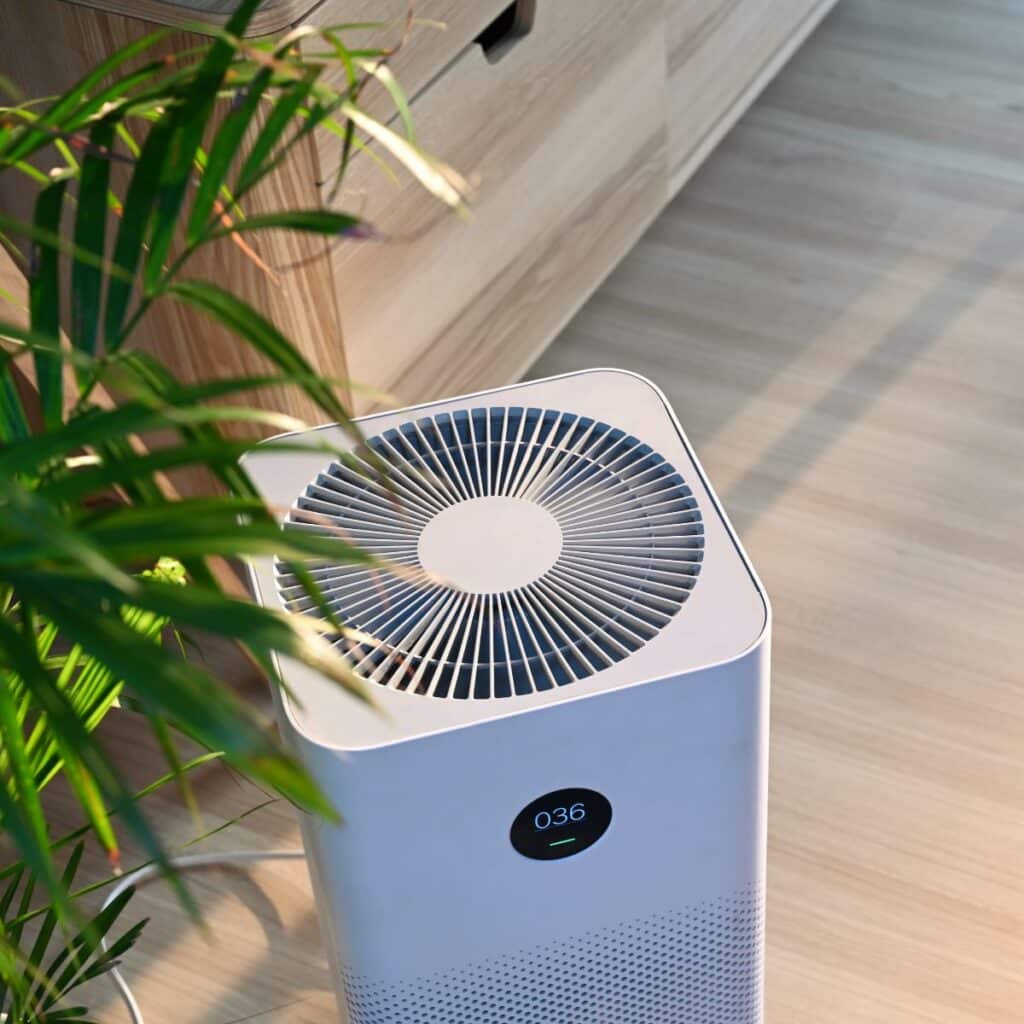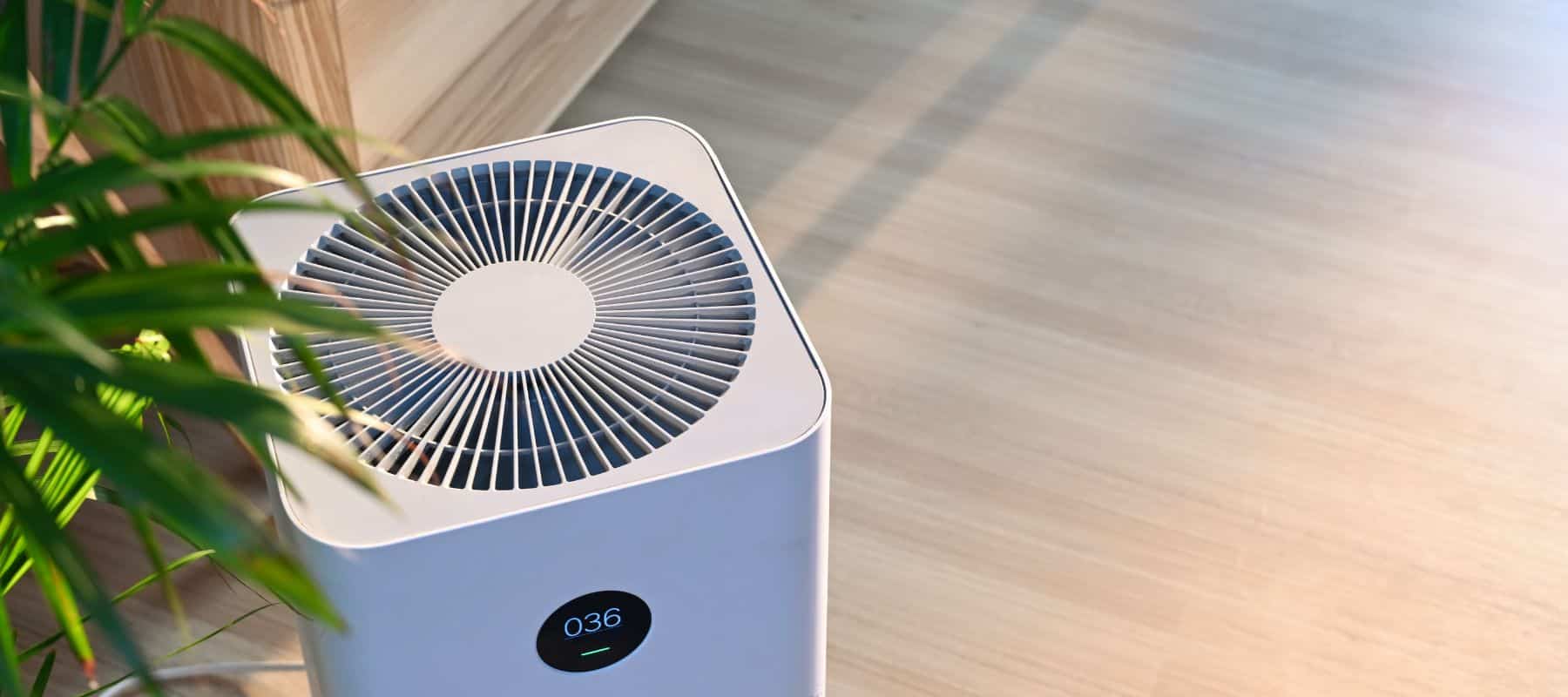Breathe Easier In Your Farmington Home
We all know that a clean home is important. While a little bit of clutter doesn’t hurt anyone, it’s common knowledge that ignoring the chores for too long can eventually create a situation that can negatively impact your health.
One aspect of home cleaning that’s often overlooked is the quality of the air inside your home. While it might be easy to assume that indoor air is naturally clean, this couldn’t be further from the truth. In actuality, the quality of your indoor air can make your life harder without you knowing it.
If you want to make sure that the air inside your home is always clean and you have access to the best indoor air quality solutions possible, look no further than the team here at Robbins Heating & Air Conditioning.

What Is IAQ?
IAQ stands for “indoor air quality,” and refers to the number of suspended particulates present in the indoor air. Your IAQ is important to maintain because being exposed to unhealthy air can lead to several negative consequences, including:
- Increased respiratory issues
- Chronic allergy symptoms
- Poor sleep quality
- Decreased overall lung function
While most of the extreme symptoms only happen after prolonged exposure, breathing poor indoor air is never a good thing. That’s why it’s so important to take steps to ensure that the air inside your home is clean.
Main Contributors To Poor Indoor Air Quality
When it comes to your home’s indoor air quality, there are a variety of factors that can have negative impacts. Our team at Robbins is here to share some of the common causes of poor IAQ.
Bad Ventilation
With any indoor area, it’s very important to maintain a constant exchange between stale air and fresh. Without adequate ventilation points to provide this exchange, it’s incredibly easy for your air to become stagnant and filled with particulates you’d rather not end up in your lungs.
Ventilation is vital for maintaining good indoor air quality, particularly in places where contaminants are likely to be produced, such as cooking areas and heat sources.
Biological Contaminants
Biological contaminants refer to the microscopic byproducts of living or once-living organisms. In regards to IAQ, it’s generally referencing the spores released by mold and mildew.
The best way to prevent this type of contamination is by addressing the areas where it’s likely to start. Try to keep areas that are prone to excessive moisture or humidity clean and dry.
Poorly Maintained HVAC Systems
While a good HVAC system can work hard to help keep your indoor air fresh and clean, poorly maintained heating and cooling systems are some of the largest contributors to poor air quality.
Between inadequate filtration and dirty ductwork, there are many components of an HVAC system that can contribute to poor indoor air quality if not properly maintained.
Less-Than-Ideal Cleaning Habits
Particularly if you live in a dusty environment, regular dusting and vacuuming are key to maintaining breathable air inside your home.
Even spots you may not consider, like your curtains and drapes, should be regularly cleaned to prevent them from becoming vectors for dust and dirt that are ready to be knocked into the air at the slightest bump.
Pets
Unfortunately, our furry friends can be some of the most significant contributors to poor indoor air quality. Depending on the type of pet and breed, some animals tend to shed massive amounts of fur and dander, which can be picked up by the air and cause major issues for people with allergies and respiratory problems.
The best way to help our furry friends is by being diligent about brushing their coats and treating them to regular grooming. Your lungs will thank you and your pets probably won’t mind either!
Reach Out To Robbins Today
For dependable indoor air quality services in Farmington, call the professionals at Robbins Heating & Air Conditioning today! From actionable advice that promotes clean air to the installation of whole-home air purifiers, we have everything you need to ensure that the air inside your home is as healthy as possible.
More Air Conditioning
AC Repair
Quick relief from the summer heat with AC solutions!
AC Replacement
Count on cool air all summer long with a new AC unit!
AC Tune-Up
Our team gives your system a thorough inspection!
Commercial AC
Frosty solutions for every Farmington business' needs!
Duct Services
Clear the way for smooth air delivery in your home!
Heat Pumps
Versatile heating and cooling - the ultimate home comfort!
Mini Splits
Lose the ducts for hassle-free air conditioning!
Smart Thermostats
Embrace convenience with smart thermostat tech!
Swamp Coolers
Invest in comfort throughout your home this year!




